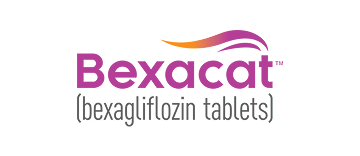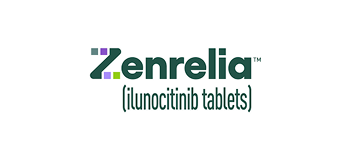Levetiracetam
Prescription required.
You already have a

subscription.
You already have a

subscription in cart.
Your order may arrive in two packages. We ship non-Rx items without delay while the Rx approval is pending. You will receive two tracking numbers.
Prescription required.
You already have a

subscription.
You already have a

subscription in cart.
Your order may arrive in two packages. We ship non-Rx items without delay while the Rx approval is pending. You will receive two tracking numbers.


What is Levetiracetam?
Levetiracetam is an anticonvulsant medication that treats seizures in dogs and cats. It can be used by itself or with other anticonvulsant medications. Levetiracetam is in certain cases safer for pets to use than other anticonvulsant medications because it passes through the urine instead of being broken down by the liver or metabolized by the kidneys. Levetiracetam requires a prescription from your veterinarian and is sold by the tablet.
For:
Dogs and Cats
Benefits:
- Helps control seizures
- Increases your pet's quality of life
- Can be combined with other anticonvulsant medications
- In certain cases, safer to use than other anticonvulsant medications
- Sold by the tablet
How does Levetiracetam work?
Levetiracetam decreases abnormal excitement in nerves in the brain and as a result, reduces seizures.
Cautions:
Even though Levetiracetam isn't metabolized by the kidneys, tell your veterinarian if your pet has kidney disease. The dosage may have to be reduced as a result. Do not stop giving Levetiracetam suddenly unless directed by your veterinarian. Suddenly stopping dosages can result in your pet experiencing a seizure. Tell your veterinarian if your pet is pregnant or lactating.
Brand Name:
Keppra
Generic Name:
Levetiracetam
What is the most important thing I should know about Levetiracetam?
Levetiracetam must be given exactly as directed by your veterinarian. Do not stop giving Levetiracetam suddenly. Try not to miss any doses. Levetiracetam is available in 250 mg and 500 mg tablets, and is available in Extended-Release tablets of 500 mg and 750 mg. Higher doses may be required to control seizures. Blood monitoring is generally not required for this medication; however, only the veterinarian can decide that for your pet. Complete the entire treatment plan given by your veterinarian to prevent relapse or the development of resistance.
What should I discuss with my veterinarian before giving Levetiracetam to my pet?
Tell your veterinarian if your pet has kidney disease or is pregnant or lactating. Tell your veterinarian if your pet is taking any other medication or supplements. Also, tell your veterinarian if your pet has any allergies to any medications.
How should Levetiracetam be given to my pet?
Give this medication exactly as directed by your veterinarian. If you don't understand the instructions, ask the pharmacist or veterinarian to explain them to you. The exact dosage for your pet varies on many factors, including the severity of the condition, and will ultimately be determined by your veterinarian. Levetiracetam can be given with food.
What are the potential side effects of Levetiracetam?
Possible side effects of Levetiracetam include drowsiness, changes in behavior, vomiting, or diarrhea. In cats, a decrease in appetite can occur.
What happens if I miss giving a dose of Levetiracetam to my pet?
Give the missed dose as soon as you remember. If it is close to the next dose, skip the missed dose and continue with the regular schedule of doses. Try to give the doses at the same times.
What happens if I overdose my pet on Levetiracetam?
Contact your nearest emergency animal hospital.
What should I avoid while giving Levetiracetam to my pet?
Avoid giving to pets who are pregnant or lactating. It may cause embyronal or fetal loss. Discuss with your veterinarian if the benefits of giving Levetiracetam outweigh the risks. Also, avoid giving to pets with kidney disease.
What other drugs will affect Levetiracetam?
Tell your veterinarian if your pet is on any anticonvulsant medications, or other medications or supplements. Contact your veterinarian if your pet experiences any abnormal reactions when different medications are given together.


Levetiracetam Directions:
- Dosage is ultimately determined by your veterinarian.
- Follow your veterinarian's instructions exactly when administering Levetiracetam to your pet.
- Levetiracetam can be given with food.
Complete entire treatment plan unless directed otherwise by your veterinarian.
Levetiracetam Dosage:
| Weight | Dosage |
|---|---|
| All weights | Dosage is often started at 10 mg/lb (20 mg/kg) by mouth three times daily (every 8 hours). |
| Weight | Dosage |
|---|---|
| All weights | Dosage is often started at 5-10 mg/lb (10-20 mg/kg) by mouth three times daily (every 8 hours). |
| Horses | Do not use! |
|---|
Storage:
Store at room temperature in a cool, dry place out of the reach of children and pets. Store away from heat and direct sunlight.


Levetiracetam Ingredients:
| Active Ingredient (per tablet) | Amount |
|---|---|
| Levetiracetam | 250 mg |
| Active Ingredient (per tablet) | Amount |
|---|---|
| Levetiracetam | 500 mg |
| Active Ingredient (per tablet) | Amount |
|---|---|
| Levetiracetam | 500 mg |
| Active Ingredient (per tablet) | Amount |
|---|---|
| Levetiracetam | 750 mg |


 Swipe
Swipe


















































